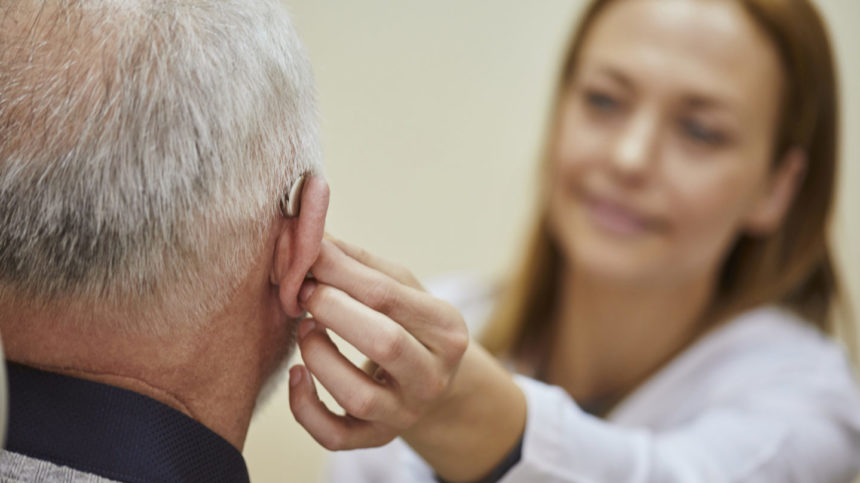
New research sheds light on hearing loss among older adults. Namely, it points to how widespread hearing loss is — and how few people are wearing hearing aids. The news comes as more research shows the health benefits of hearing aids go beyond just helping people hear.
Authors used data from the 2021 National Health Aging and Trends Study to gather more intel on older people who are most at risk for hearing loss. The report appeared Friday in JAMA Network Open.
The nationally representative sample was composed of 2,803 participants over the age of 71 who were using Medicare. It included 13.8% between 80 and 84 years old, 7.9% of people who were 85 to 89 years old, and 4% were over the age of 90.
About 65.3% of adults 71 years and older had at least some degree of hearing loss, researchers found. That is, 37% had mild hearing loss, 24.1% had moderate loss and 4.2% had severe loss. Hearing loss was more common in people who were white or male, and in those with lower incomes and education levels. It increased with age, too. In fact, 96.2% of people over the age of 90 had experienced hearing loss, the authors reported.
Interestingly, only 29.2% of people with hearing loss used hearing aids. The number of people using aids was lower in Black and Hispanic individuals, as well as those with lower income levels.
Hearing loss in both ears is pretty common in older adults who live in the US and gets more severe with age. Despite this, the number of people using hearing aids is relatively low. And the problem is not confined to the US. A study released last month found that just 50% of residents with dementia in UK care homes get help for hearing loss.
More data is coming out about the benefits of hearing aids. A large study released earlier this month found that wearing hearing aids slowed cognitive decline by 48% in older adults with mild to moderate hearing loss.



